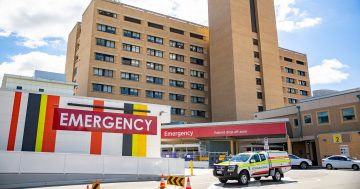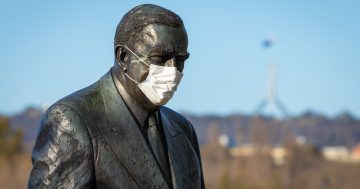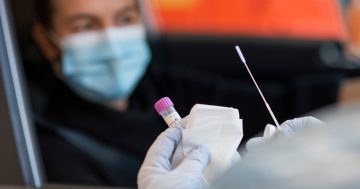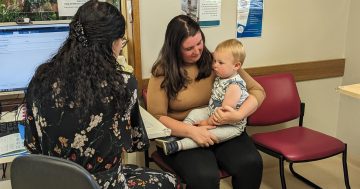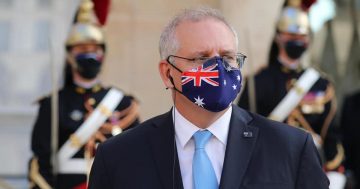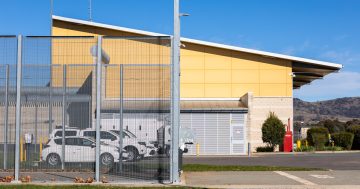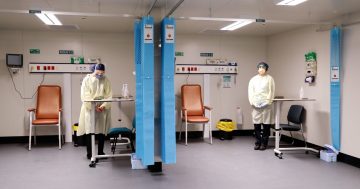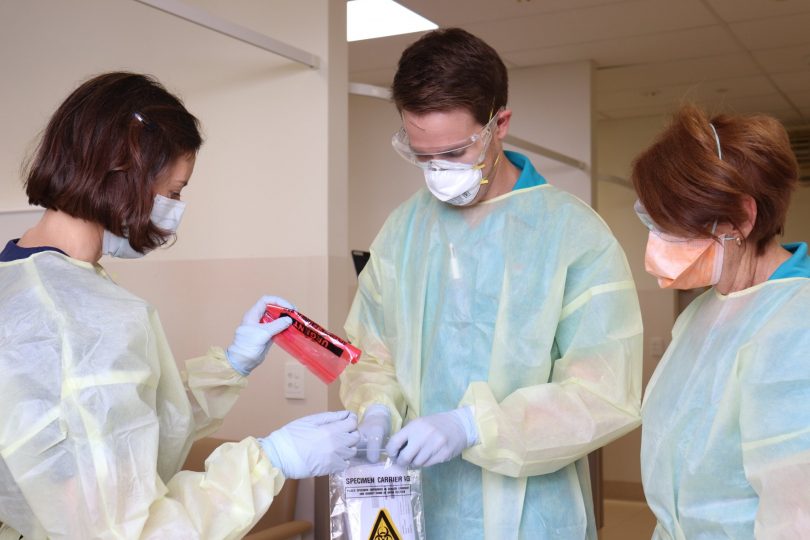
Five new COVID-19 cases have been announced the ACT. Photo: File.
As the number of confirmed COVID-19 cases continues to rise in the ACT, Chief Minister Andrew Barr has slapped down any suggestion that the cure may be worse than the disease and flagged even tougher restrictions to contain the virus might soon be on the way.
“I think people need to have a look at what’s happening in Italy and Spain,” he said. “We’re not far from the Phillip ice skating rink – equivalent facilities in Spain and Italy are being used as morgues.”
Mr Barr doubled down on pleas to Canberrans to heed the tough new restrictions the Prime Minister announced last night, and Health Minister Rachel Stephen-Smith warned against complacency after only five new cases were announced today, bring the ACT total to 44.
Ms Stephen-Smith said the small rise showed that people were doing the right thing and she took heart from the fact that four of the cases were international travellers and the other was a close contact of an already known case.
This means there are still no local community transmissions of the virus in the ACT.
“But we can’t be complacent about that. It’s a balance of encouraging people to stay calm and not panic and reassuring people that we are testing at some of the highest rates in the world,” she said.
“We know what we are seeing around the world and we don’t want to end up there.”
The new cases include four men and one woman, aged between 27 and 73, and close contacts were being traced.
Four of the cases are linked to overseas travel, including cruise ships. Overall, 14 cases involve cruise ship travel.
Further details of the positive diagnoses and flights with confirmed cases of COVID-19 will be uploaded to the ACT Health website.
There have been 2964 negative COVID-19 tests in the ACT to date.
Three COVID-19 patients remain in Canberra Hospital, and the rest are self-isolating at home with ACT Health support.
Mr Barr said that the ACT would not be creating a police task force to enforce the new restrictions and social distancing requirements, but the shutdown had given police space to redirect their efforts. Access Canberra’s regulatory and enforcement staff have also been repositioned to ensure people and businesses complied.
Ms Stephen-Smith also announced the first moves to create space and capacity in the hospital system with the cancellation of elective surgery, other than category one and urgent category two cases.
Thirty patients, 28 from Canberra Hospital and two from Calvary Public, have also been transferred to the University of Canberra Hospital to free up bed space.
As well, all non-urgent and non-essential non-admitted activity in the health system is being reduced, including community-based services, medical outpatients, procedures, and treatments.
From Monday, appointments that clinicians deem to be non-essential will be either be cancelled or postponed, and essential appointments will be delivered online where possible, such as telephone or video consultations.
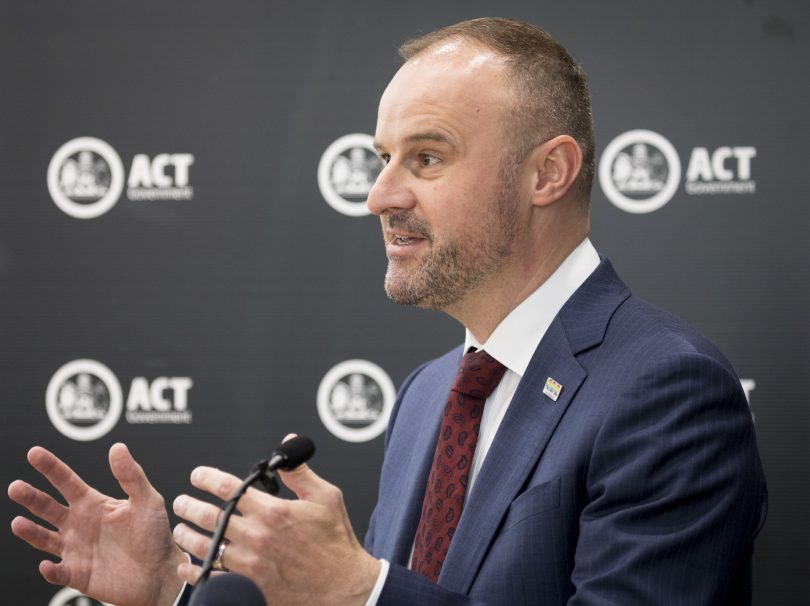
Chief Minister Andrew Barr: there is no easy fix. Photo: Michelle Kroll
The hydrotherapy pool at University of Canberra Hospital will close from Monday.
Mr Barr said the coronavirus situation posed a wicked dilemma for Australians, warning that any premature let-up in the measures to contain the virus would see it rebound, as appeared to be the case in China.
He said the country would move to the next stage of restrictions first before any relaxation, stressing that it would be a long-term campaign
“The idea that a complete shutdown of everything, say two weeks, or four weeks or as some are now suggesting eight weeks, would solve the problem – it doesn’t.
“As soon as it unlocks it starts again, and I don’t think enough people understand that.”
There was no easy fix, he said.
While the ACT would still need to emulate NSW’s measures for practical reasons, Mr Barr remained committed to the National Cabinet process and the Territory would not enact further measures outside of it.
Mr Barr said the complex issue of child care was being worked through at ACT and Commonwealth levels, and with operators, to resolve the emerging questions around fees and places.
He also called on the Federal public service to take a more flexible approach to allow more of its staff to work from home.
People who are concerned and want further information on the virus can also call the Australian Government’s Coronavirus Health Information Line on 1800 020 080.
For details on how the ACT stats compare to other jurisdictions across Australia, visit the Australian Government Department of Health website. This information is updated daily. For the latest information go to www.health.act.gov.au.













